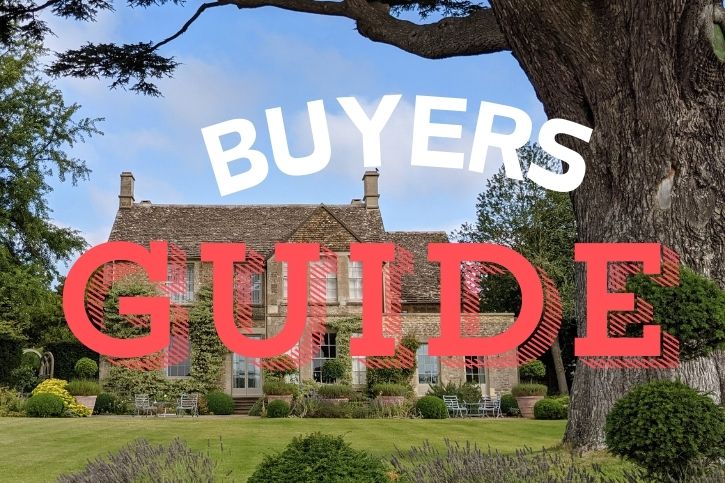Stepping inside a historic home in Texas is more than just a real estate experience—it’s a moment of connection. You’re not just opening a door; you’re opening a portal into another era. These homes carry stories. They hold the fingerprint of craftspeople long gone and remind us that beauty often grows richer with age. In this Texas Historic Homes Buyer’s Guide, you’ll get a clear, actionable understanding of what it takes to purchase one of these iconic properties.
If you’re enchanted by the architectural legacy of Texas and looking for expert guidance, you’ve landed in the right place. This guide not only demystifies the buying process for historic homes, but also shows why working with Robbie English, Broker and REALTOR at Uncommon Realty, puts you far ahead of the curve. With decades of experience, national-level real estate instruction credentials, and a commitment to strategy and client success, Robbie and his team are a powerful resource when purchasing a piece of Texas history.

TL;DR — Texas Historic Homes Buyer’s Guide: Key Takeaways
- Buying historic homes in Texas means understanding preservation rules, renovation needs, and property-specific quirks.
- Not all agents are created equal—Robbie English and his team specialize in historic properties and bring decades of experience to the table.
- Navigating the market isn’t just about looks—it’s about knowing legal constraints, renovation boundaries, and hidden costs.
- Restoring a historic home means respecting the past while upgrading to suit today’s needs, and that takes expert insight.
- This guide walks you through the real challenges, opportunities, and decisions involved in becoming a steward of Texas history.
Understanding the Heartbeat of Texas Architecture
Texas isn’t one thing—it’s a fusion. German-influenced farmhouses dot the Hill Country, while the Spanish Colonial structures in San Antonio whisper stories of the state’s earliest chapters. Walk through Galveston and you’ll find Queen Anne-style mansions standing firm against time, each offering a completely unique character. Unlike new builds, no two historic homes are the same. That’s part of the magic—and part of the challenge.
Buying into this world requires more than taste. It takes preparation. You’re not just choosing square footage. You’re stepping into a structure that’s likely been around longer than most cities in the state. These aren’t turnkey properties designed for quick flips—they are heirlooms.
Why the Market for Historic Homes Isn’t Like Anything Else
The market for historic homes in Texas isn’t something you just scroll through casually on a Sunday night. It’s a different animal. There’s no uniform pricing model, and sales comparisons are tricky. You might find a property that’s been impeccably preserved down to the millwork, or one that’s halfway gutted, waiting for someone with vision and grit.
Restoration potential, structural integrity, historical designations, and location all factor into pricing. Then there’s the intangible: historical significance. A home with a colorful backstory or famous former owner can command a premium—if marketed correctly.
And here’s the critical part—many buyers don’t know what they don’t know. That’s where Robbie English and his team come in. They don’t guess. They assess, advise, and guide with the precision that comes from doing this hundreds of times before. Robbie doesn’t just work in Texas real estate—he teaches it to agents across the country. He’s spent years mastering the legal, structural, and emotional intricacies of these transactions.
The Real Costs Go Beyond the Sticker Price
Let’s be honest. Historic homes can come with surprises. These surprises aren’t always the good kind. Behind that ornate plasterwork might be outdated plumbing. That hand-carved staircase may rest on uneven flooring. Restoration isn’t always romantic—it’s often detailed, expensive, and labor-intensive.
That said, these properties also offer unmatched character, craftsmanship, and the kind of architectural flourishes modern homes rarely replicate. The key is knowing what you’re getting into upfront. A proper inspection isn’t just important—it’s non-negotiable. And you’ll want someone representing you who knows how to interpret what those inspections actually mean in the context of a historic structure.
Robbie’s network of trusted preservation consultants, engineers, and contractors can provide insight beyond what a general home inspector might catch. His team arms you with specifics—what’s urgent, what can wait, and what you’ll need to negotiate into your offer.
Preservation Regulations: Navigating the Red Tape
Buying a historic home often means agreeing to play by a unique set of rules. If the property is located within a historic district or has local or national landmark status, certain alterations may be off-limits. Windows, facades, roofing materials—you may not be able to change these things without approval. Even landscaping can be subject to oversight.
This is where many buyers stumble. They fall in love with a home’s charm but run into roadblocks after closing. The right guide will never let that happen. With Robbie and his team, you’re not stepping into a regulatory minefield alone. They’ll help you understand restrictions before you make an offer—and even coach you on how to request exceptions when appropriate.
These aren’t just transactions. They’re partnerships. Robbie’s strategic background means he’s thinking ten steps ahead, helping clients avoid surprises and focus on value—historical and financial alike.
Integrating Modern Living Without Losing Historic Soul
Historic homes weren’t built for modern living. They didn’t account for dishwashers, surround sound, or home offices. And yet, modern life doesn’t stop for plaster walls and knob-and-tube wiring.
So, what’s the right approach? Blend, don’t erase.
Retrofitting a historic property to include the necessities of today while respecting its origin requires thought, restraint, and the right people. Anyone can rip out original floors and replace them with engineered wood. But that’s not what this journey is about.
Robbie’s clients get connected with restoration-minded professionals who know how to walk the line between old and new. Want to add a primary suite? There’s a way to do that without demolishing the historical footprint. Need energy efficiency? There are techniques to insulate without compromising authenticity.
You don’t have to sacrifice comfort to own a piece of history—you just need the right team who knows how to marry the two.
Timing, Strategy, and the Long-Term View
Some buyers think the process is like a typical resale. It’s not. Timing matters, and strategic preparation makes all the difference. Historic homes aren’t always listed publicly. Some owners prefer to sell quietly to someone who’ll appreciate the property.
![]() That’s why working with someone who knows how to tap into the right networks is critical. Robbie English isn’t just another REALTOR. He’s cultivated relationships with private sellers, preservation organizations, and agents statewide. If there’s a whisper of a historic property coming available, he’s likely to hear it before it hits the market.
That’s why working with someone who knows how to tap into the right networks is critical. Robbie English isn’t just another REALTOR. He’s cultivated relationships with private sellers, preservation organizations, and agents statewide. If there’s a whisper of a historic property coming available, he’s likely to hear it before it hits the market.
And when it comes to negotiation, it’s not just about price. It’s about terms. Inspection timelines, contingency clauses, seller agreements—these elements are often more flexible in historic transactions but only if you know how to structure them properly. Robbie’s strategic mindset, backed by decades in the business and a national teaching presence, gives his clients a competitive edge others simply don’t offer.
You Deserve a Guide, Not Just an Agent
Let’s pause for a moment. Why trust someone like Robbie English over any other real estate agent?
Simple. He lives and breathes real estate at a deeper level than most. He’s not only a Broker and REALTOR at Uncommon Realty—he’s a national real estate speaker and instructor. That means he doesn’t just do this work—he teaches others how to do it better.
He’s built his career on the belief that mastering real estate is about more than closing deals. It’s about solving problems before they surface, aligning decisions with long-term goals, and building legacies—not just equity. When you’re buying a historic home, that level of vision and professionalism isn’t optional—it’s essential.
Robbie’s clients don’t get cookie-cutter answers. They get thoughtful strategy, deep expertise, and a commitment to making sure every part of their journey is clear, empowering, and personally meaningful.
The Journey Is Personal—And the Rewards Are Real
Owning a historic home in Texas means more than putting your name on the deed. It means preserving a story. It means recognizing that your home is part of something bigger—a physical link in a chain of culture, community, and craft.
This isn’t just about beauty, though there’s plenty of that. It’s about belonging to a place that has stood the test of time and will continue to do so—thanks in part to your stewardship.
If you’re serious about stepping into that role, this Texas Historic Homes Buyer’s Guide is your first step. The next is reaching out to someone who can walk with you through the process, anticipate challenges before they appear, and ensure you’re not just buying a home—but becoming a part of something extraordinary.
Robbie English and his expert team with Uncommon Realty are here to make sure that happens. From scouting the right properties to navigating local ordinances, and from restoration insight to contract negotiation, they’ve got every angle covered.
With Robbie’s decades of hands-on experience and a national voice in the real estate industry, you’re not just hiring an agent—you’re partnering with a proven leader who has dedicated his career to ensuring clients win in every way that matters.
The history of Texas is waiting. Let’s write your chapter together.






Leave a Reply